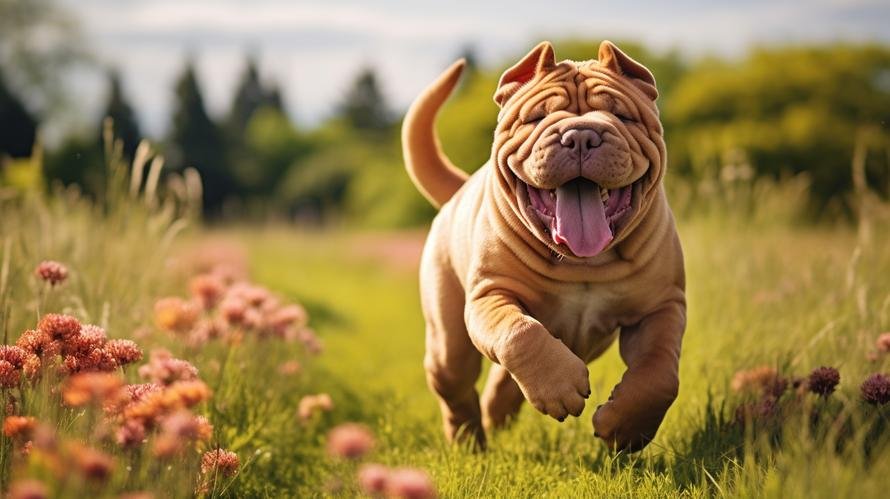Did you know that your loyal and lovely Shar-Pei is direct descendants of wolves? Yes, you heard it right! They share almost 99.8 percent of DNA with wolves. Fascinating, right? Now, let’s relate this to their meals. It’s unlikely to spot a wolf snacking on corn or wheat in the wilderness, isn’t it? True, because they are essentially carnivores. So are our domestic buddies, the Shar-Peis! Understanding this aspect of their ancestral diet can significantly influence their health and vitality.
Have you noticed your Shar-Pei scratching persistently, shaking its head excessively, or losing hair? These could be signs of food allergies. With the variety of food options available for pooches, you might be wondering if going grain-free is the right choice for your Shar-Pei. Let’s dive in and learn how ditching grains may benefit your big-eyed, saggy-skinned buddy.
Shar-Peis, like many other breeds, have been showing an increasing tendency to develop food allergies. This is primarily to wheat, corn, soy and, less commonly but signficantly – rice. These items are considered to be high-risk ingredients for provoking allergies. Unfortunately, they are typically used as fillers in many dog foods. They add bulk to the food without necessarily adding health benefits, leading to food sensitivities.
One major symptom of food allergies in dogs is itchy skin. If your Shar-Pei is constantly itching or showing signs of skin irritation, a grain allergy could be the culprit. Shar-Peis are known for their uniquely wrinkled skin which, as adorable as it is, can be a hiding place for irritating particles and a hotbed for infections. Grain allergies can dramatically exacerbate these skin problems.
Other symptoms might include chronic ear infections, gastrointestinal problems like vomiting, diarrhea, and flatulence, as well as constant paw-licking. Grain allergies can potentially be so severe that symptoms include seizures in rare cases. If your Shar-Pei is exhibiting any of these symptoms and your vet has ruled out other health issues, a grain allergy might be to blame.
Now, switching over to a grain-free diet isn’t just about avoiding potential health problems. It can also be about optimizing nutrition. Dogs are primarily carnivorous and their bodies are designed to break down and utilize protein and fats, not carbohydrates from grains. Feeding your Shar-Pei grain-rich food might give them calories, but not necessarily the nutrients they need for optimal health, leading to weight gain and associated health problems.
Interestingly, research shows that grain-free food typically has a higher amount of protein, which is more conducive to a dog’s nutritional needs. This means giving your Shar-Pei a grain-free diet could result in improved coat health, healthier skin, more energy, less flatulence, better breath, reduced stool volume and weight management.
Remember, though, just like humans, every dog is unique. What works well for one might not for another. If you decide to transition your Shar-Pei to a grain-free diet, it’s crucial to monitor their health closely during the transition period. The diet might be adjusted based on the unique dietary needs of your pet. It’s beneficial to work with your vet to ensure that your Shar-Pei is getting the proper nutrients.
You should also note that not all grains are harmful to your dog. Some grains like quinoa, oats, and brown rice, which are less likely to cause a food allergy, can be beneficial to your dog’s health. They are a rich source of dietary fibre, which aids in digestion and helps in keeping your pet’s weight in check.
If you’re considering switching to grain-free dog food, it’s also crucial to strike a balance. An all-meat diet can lead to an overconsumption of protein and fat which can, over time, lead to other health problems. Consult with a vet to make sure you’re striking the right balance.
In conclusion, going grain-free could be beneficial for your Shar-Pei, particularly if they’re showing signs of grain allergies. It’s crucial to ensure a diet that balances the right nutrients for your canine friend. Always remember that what ultimately matters is the health and happiness of your four-legged companion. Is it time for you to make the switch? Only you and your vet can make that decision.



